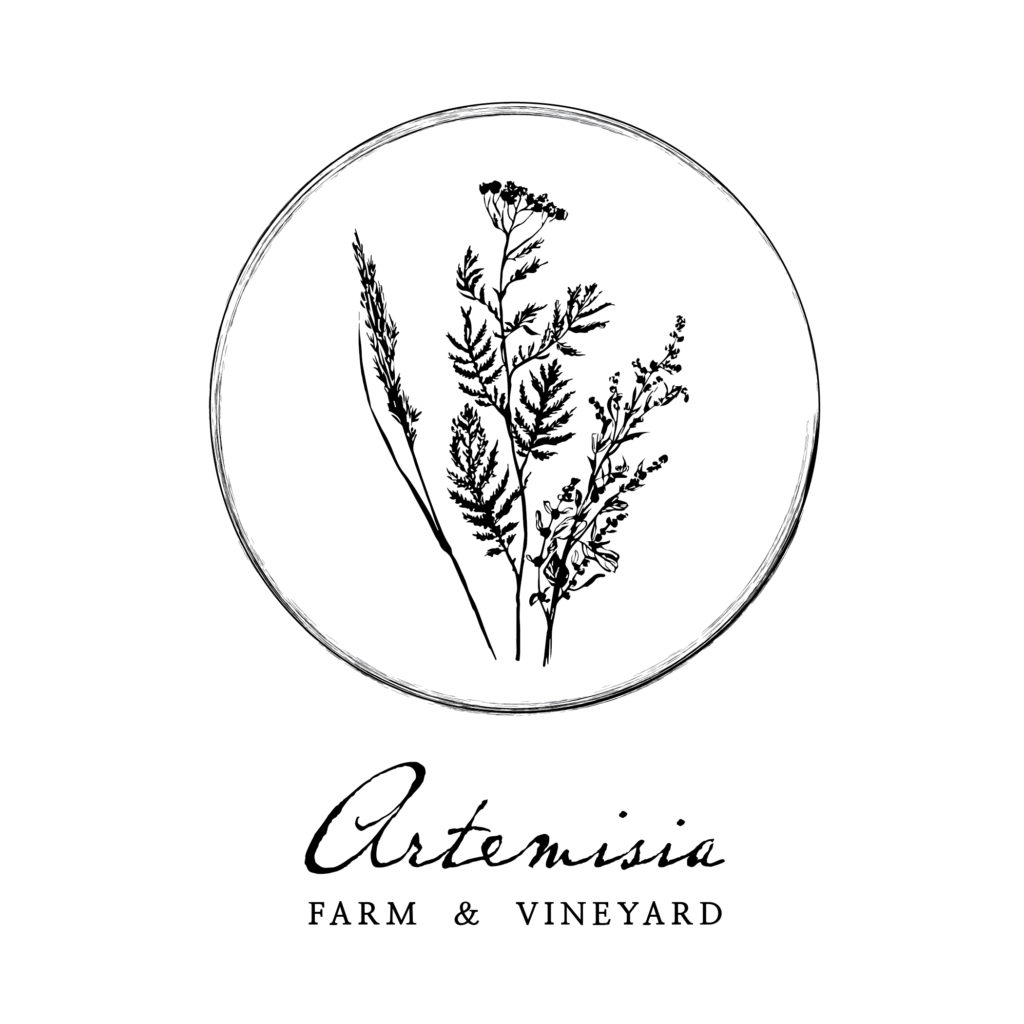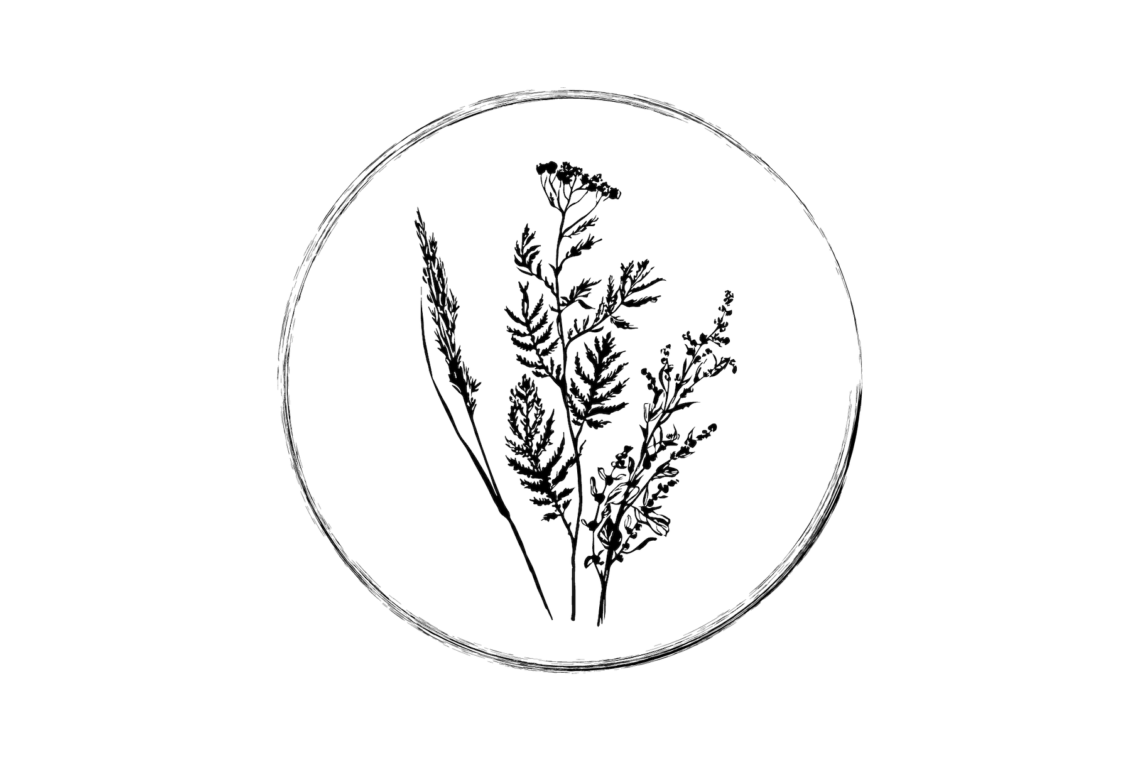“The care of the Earth is our most ancient and most worthy, and after all our most pleasing responsibility. To cherish what remains of it and to foster its renewal is our only hope.”
– Wendell Berry
This is an invitation. We are appealing to you for a collaboration in one small and decidedly specific way: to change the cultural narrative of rural Virginia and recenter our established norms to a healthier, more sustainable tonality. As we detail below, we intend to breach this divide by reinstating diversity in foodways and in the distribution of value-added artisan products.
Follow Artemisia on Instagram:
artemisia.farm
This project, as with all things green and growing, will take time. We are operating within the cyclic seasonality that nature prefers, following a linearity that is bound to a embedded energetic circuitry. This is a project and investment of mind, heart, and soul, an attunement to the space and place through which we work. We move within this vineyard as stewards, artists, translators, and as sounding boards for the flora and fauna that reside therein.
In the implementation of this project, we have taken to nature a mirror and cast the vineyard in a state of biomimicry. We are of the mind that by imitating the natural order, we can create a productive system that negates the use of conventional applications (fungicides, pesticides, herbicides) while still allowing for the proliferation of local species. We intend to cultivate this site as a polyculture, bioregional microsom, giving preference to our Vitis vinifera cultivars and the select screen of cash-crops that otherwise support the whole. As the local spectrum is not entirely native nor balanced (Japanese Beetles, for example), we intend to implement applications throughout the farm-vineyard to ameliorate these threats while simultaneously eliminating extended toxicity upon the land.
More importantly, the core revenue of the site will remain intact. In maintaining this balance and preventing dominance from native stressors, we have at our disposal an arsenal of techniques and treatments that are non-toxic to the environment, and seamlessly able to be integrated into conventional application techniques. In short, we will produce crops of value on our land with the needs of the land in mind, and we will do so sustainably and profitably.
Problems cannot be solved at the same level of awareness that created them.
– Albert Einstein
Cultivation is more than a means to an end. At the gate, it is provisionary, but in its tracks one sees its echo branching like coral through the generations. Nature provides all things, the most obvious of which is food and shelter. It yields, too, a secondary tier: ethics, moral inspiration, the incipient verbiage to which groups and individuals ascribe their modus operandi. In engaging with the compass of local foodways, we assume the potential to enact positive change within the gustatory reach of our work. Eating and consumption go beyond sustenance: a meal (or glass of wine) is an aggregate of sensorial aestheticism and biological necessity. How to eat, what to eat, and when to eat all speak to nuanced niches through which individuals interact within their culture.
In short, in changing the expectations of local foodways, we raise the cultural bar on civic development. We intend to showcase our work through outreach, education, and the development of professional relationships. By developing a vocal presence through social media, the internet, and networking, we intend to shift the static enological narrative from that of agritourism and entertainment to one of essential sustenance, beauty, and environmental equality. As Patricia Harris and David Lyon write in The Meaning of Food:
“…everything about eating, including what we consume, how we
acquire it, who prepares it and who’s at the table – is a form of
communication rich with meaning. Our attitudes, practices and
rituals around food are a window onto our most basic beliefs
about the world and ourselves.
When foodways are altered, so too are the lives that they enrich. When the manner by which we interact the land shifts from a reduction of use-value to an embrace of intrinsic worth, so follows suit how individuals acknowledge their fellows. In a world defined by the commoditization of the natural, we are not simply continuing the trend of sustainable agriculture, nor are we operating within the limits of spearheading a new viticultural frontier in Virginia. We are participating in the muzzling of a cultural narrative that defines people as a means to an end rather than as individuals. By exemplifying a divergent norm in which the earth is greeted with compassion, mindfulness, and awareness, we pioneer a human culture in which individual diversity is cherished and realized.
There is still the question of means. Having arrived at the terminal prospects of this endeavor, we feel that it is more than possible to recover our upfront costs within one to five years. Ours is a project informed by multiple tiers of potentiality, with acknowledgement to financial buffers that eliminate the precipice of catastrophic failure. We have at our disposal myriad financial projections outlining achievable goals via various timetables. Constantly, we find that our projected crop harvests are financially positive, with uncommonly low risk given our agricultural premises. Within a maximum of five years, we intend to establish a profit-driven paradigm not just for Virginian viticulture, but for sustainable agrarianism statewide. To achieve this, we will source upfront funds in the form of loans, grants, and crowdsourcing. This would allow us the capacity to support our expenses and account for operational costs until the harvest. Furthermore, it would eliminate reliance upon a singular financial plan, allowing for multiple, malleable options.
Our initial harvest will lean heavily upon grapes and cash crops (oyster mushrooms, shiitake mushrooms, culinary herbs, garlic, and lavender.) Within a reasonable spectrum, we foresee the possibility to expand upon our current crop selection through enhanced agrodiversity, value-added product production, and possible partnership with local businesses. To this end, we will never compromise the integrity of the land, nor the quiescence that our agrarian foundations speak to. This will never be a raucous travel destination or overinflated and obtsuly capitalized production model. Stewardship, education, and ethical cultivation are the heart and soul of our endeavors upon this site.
We implore you to walk this road with us. In gifting us the blank pages of your vineyard and any further assistance you can offer, you give us a once in a lifetime opportunity to actualize a shared latent potential to redefine the future of this landscape, one that we both know as home. The precedent that we establish here has the potential to take root as a new paradigm for equitable reciprocity between human society and the natural world. Agriculture is the vector of this exchange, the language by which we speak our thoughts to the world, and through which we hear its whispers in return.
“Humankind has not woven the web of life. We are but one thread within it. Whatever we do to the web, we do to ourselves. All things are bound together. All things connect.”
– Chief Seattle, 1854

